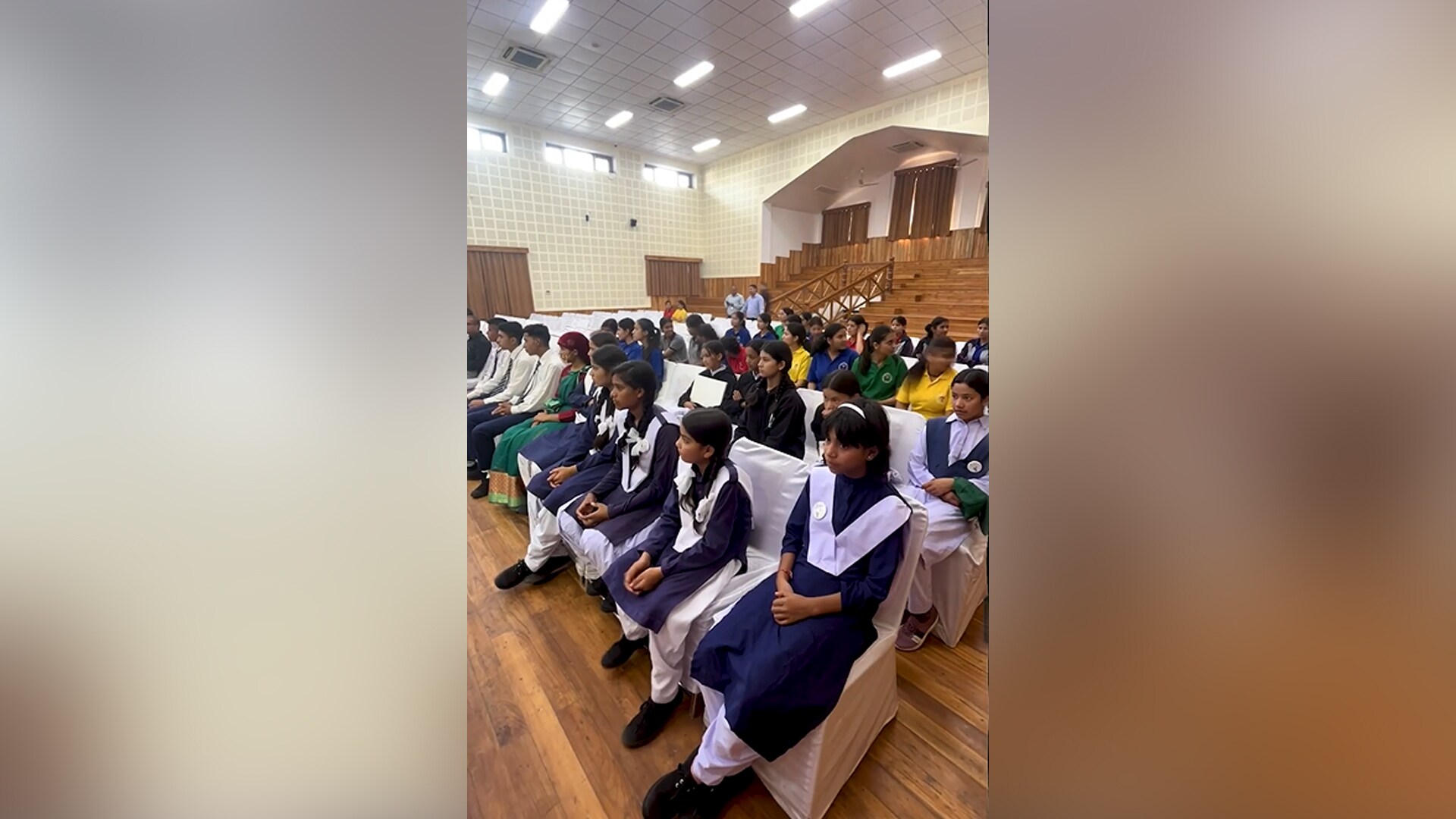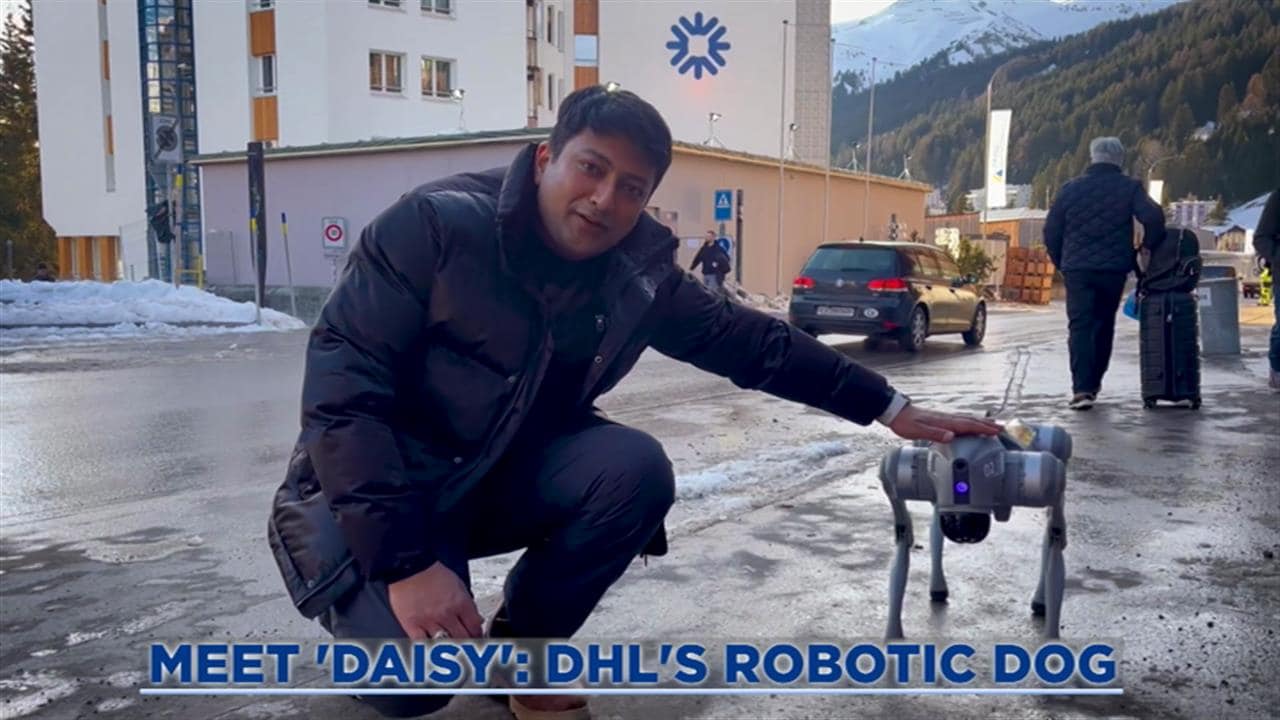

- Home/
- Top Stories/
- Setting a foundation for renewed growth: Guy Ryder
Setting a foundation for renewed growth: Guy Ryder

Guy Ryder, director general of International Labour Organization, spoke to NDTV's Namrata Brar on the sidelines of the annual WEF meet in Davos, Switzerland.
Here's full transcript of the interview:
NAMRATA BRAR: There is a Davos disconnect that cannot be ignored in 2013 ... sitting here with the most powerful people in the world, they are talking about economic recovery but not about over 200 million jobs or unemployed people out there. To give me that perspective is Guy Ryder, director general, International Labour Organization (ILO). Thank you for joining us, Sir. My first question to you is about the Davos disconnect. You have a recovery, or everyone cheering about a recovery, but what about the huge figure of the unemployed people?
GUY RYDER: I think you are absolutely right. There is a disconnect and the talk in Davos this year that we have turned the corner towards the financial problems is coming to the fore. We are setting a foundation for renewed growth and confidences and yet as you are pointing out our figures show that global employment went up in 2012 ... over four million people in the employment queues ... and the worrying thing is that looking forward to the next year another five million and more ... So, policymakers and business people need to think about the reality of this recovery. A lot of people who don't make it to Davos ... I hope they reflect on this.
NAMRATA BRAR: I am going to ask a question which is usually asked in the stock market economy context. Do stock markets lead the economy or does the economy lead the markets ... Here, the question is do jobs follow economic recovery and vice versa ... that is really the dilemma.
GUY RYDER: History shows that when you have a recession or a financial crisis, like we are seeing since 2007, it normally takes an awfully long time for the job market and the real economy to recover. I think what policymakers need to think is how to shorten that time ....
NAMRATA BRAR: In the US, the big conversation has been the number of unemployed people and the fact that Ben Bernanke is a really frustrated man as there doesn't seem to be an answer in terms of what the central bank, or even the government, can do ....
GUY RYDER: Well, you are right monetarily speaking. Bernanke has done everything and has indicated he will continue to do that. But we are seeing some improvement in growth and some reduction in unemployment ... but it is still awfully high according to US standards. The headline figure is just under 8 per cent, but then a lot of American citizens have withdrawn from the labour market ... they have given up. The whole debate on fiscal cliff and debt ceiling is coming into play, but this is part of the global story. We need more conducive international environment. Part of the US lesson holds true for Europe as well. Individual countries can't climb all by themselves. Whether I like it or not, our destinies are linked together. So, what happens in India, what happens in the US and in Europe is a part of the bigger story. It is really needful that, internationally, governments sit together and get their music in tune with each other.
NAMRATA BRAR: Jobs in a flat world are now coming to India. The employment rate is hard to gauge than that in the US because we don't really have a number. But the US can talk about 7.8 per cent and you contest whether it is reliable or not with people withdrawing from the labour market. In India, there is so much unemployment, youth employment ... they are just not paid for their services. So, would you reckon then that India fares in general unemployment average job picture?
GUY RYDER: The point that you make is valid. Just to talk about more unemployment in India is perhaps giving a misleading picture of the real situation ... I think problems of underemployment and unpaid employment are the big stories, sadly. In India, the hope is coming back a bit, but then it certainly needs that growth along with the kind of jobs it is creating, and also the direction of its economic growth. Here, I can say we can uncover some specific issues ... there are some very venerable people in labour markets ... there are some problems I am very optimistic that the Indian government wants to address ... industrial manufacturing sector plays a critical role and the IT sector is a difficult and complex equation for India, but very important for the global economy.
NAMRATA BRAR: A short while back I interviewed Allan Span. The one thing that is holding India back are labour reforms ... he talked about this and you have the World Bank and IMF saying that labour reforms are pathetic in India because they encourage people hiring workers who are not in the structured organised labour force. In fact, I was reading numbers and 31 per cent came in from the unstructured labour force in 2000, and that has gone up to 68 per cent in 2010. How would you look at labour reforms in India ....
GUY RYDER: Well, it is an interesting diagnosis problem in India. Of course, some of the labour legislation in India goes way back to 1947 and even before 1947. The world has changed ... It's not so much inappropriate crowding people out of the economy ... I think the major problem is enforcement when we look at Indian legislation. There are so many things to be done and enforce what's written on paper. What happens at work places does not often bear resemblance to each other as one would want. So, yes, the reform process is important. Labour legislation should accompany that reforms process. And yes, we watch the major debates in India around those issues, but India also needs to pay greater attention to the administration of that legislation to make sure it doesn't remain a dead letter.
NAMRATA BRAR: The comparison between India and China always is always highlighted by corporate houses who want to do business in these countries. They say the one decision that made it clear for them was the fact that labour reforms or labour laws are easier in China despite it been controlled by unilateral form of government ...
GUY RYDER: It is not very much to do with the nature of the law but with the environment in China ... you have infrastructure, you have reliability in several areas. It's true that investors look for reliability and predictability, but India is going to look at China and draw some conclusion from it in terms of infrastructure and reliability. India has enormous advantages ... the English language capacity in the country, I don't believe that India needs to completely look over its shoulders at China to find the right solution ... there are advantages and disadvantages on both the sides ... India will find its own way.
NAMRATA BRAR: In certain things like firing workers, a little bit of protectionism is important for a country like ours where a majority of the population is poor. Someone needs to go in and look for protection, but I am just going to come to the job skill debate in Davos, which is also something that we are hearing about it a lot ... you have to create jobs, and improve educational skills just to support jobs ... what is a worker profile the world needs?
GUY RYDER: When I think all the countries meeting here in Davos come to this with a common paradox ... strange situation ... where you have very high employment ... but then we have a CEO here saying he cannot find the right skills ... we can't get people and this is a real puzzle we have to work through. I think one argument that has lost in the discussion is that sometimes companies have to create skilled workers ... they need the notion that companies can just look at the labour market ... like you go to the supermarket ... doesn't work like that ... traditionally, companies have certain responsibilities and a certain interest in their want to educate people ... but if they want to fit those people in the correct niches then they too have a role to play. So, the notion of non-employability is overstated. I really do feel that the world workforce is better educated today then it has ever been ... and emerging, developing and industrial countries need to adapt to their educational system better to meet skills of the modern economy. In some parts of Europe, you let young people to work during weekends and also allow them education, and put these two things together ... it works, but in many countries it seems difficult to get it together. So, it is a much more complex story than we imagine ... but the quality of human capital can be a big story for economic success and India has to turn its eye to that.
NAMRATA BRAR: Human capital and labour force is such a complex story ... but thanks for giving us some real insight ... a deeper issue in the Davos propaganda. Thank you so much
GUY RYDER: Thank you.












